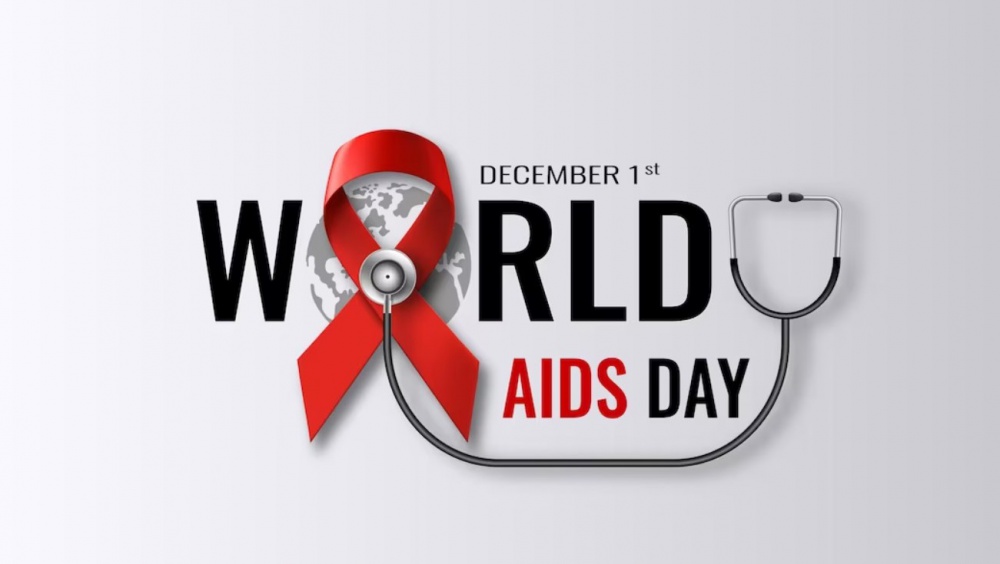«YOUTH AGAINST AIDS»
AIDS is one of the most tragic phenomena of our time, threatening the health and life of all mankind. In a short time, the AIDS epidemic has spread in most countries of the world, and the number of victims is rapidly increasing.
It is therefore necessary to carry out a number of preventive activities and solve a number of problems.
The immediate goal is to teach young people to protect themselves and their peers from infection by using all available preventive means.
The ultimate goal is to influence the consciousness of young people, who are the nation's gene pool, to change their behavior in order to orient them towards healthy lifestyle choices
Main objectives:
1. to inform about possible ways of transmission, first signs of the disease and HIV prevention measures.
2. To increase the number of young people who evaluate their behavior and correct it in order to avoid situations associated with the risk of AIDS infection.
3. weakening and eventually eliminating the unjustified AID Sophobia that currently exists in society.
4. weakening of expressed negativism and discrimination on the part of the population towards HIV-infected persons.
In the realization of this goal, 2 main stages are recommended:
I (preparatory) - training of volunteer instructors;
II (main) - carrying out preventive work in educational institutions of the city and region.
Trained volunteer instructors conduct educational work in schools, vocational schools, technical colleges and universities in the form of lectures, conversations with the use of role-playing games and video films.
SOCIAL FACTORS INFLUENCING THE SPREAD OF HIV INFECTION
The social factor is the presence of "risk groups" - more than 90% of drug addicts and more than 90% of prostitutes have no permanent place of work or study, thus being marginalized.
The psycho-physiological factor is marked by the increasing rates of acceleration, one of the moments of which is early puberty and the increasingly early age of sexual intercourse. The second phenomenon is accompanied, as a rule, by a lack of compliance with basic norms of safe sex.
HIV PREVENTION. SAFER SEX
Preventing the spread of HIV infection must be at the core of modern HIV infection control. Here, special attention should be focused on health education to change behavioral and hygienic skills. Health education should highlight the modes of transmission, emphasizing that the main mode of transmission is sexual, the harmfulness of promiscuous sexual activity and the need to use condoms, especially for casual sex. Those at risk should be advised not to donate, and infected women should be advised not to become pregnant; it is important to warn against sharing toothbrushes, razors and other personal hygiene items that may be contaminated with blood and other bodily fluids of infected persons.
However, infection is not possible through airborne droplets, household contacts and food. An important role in combating the spread of HIV infection is the active identification of infected persons through the use of antiviral antibody test systems. Donors of blood, plasma, sperm, organs and tissues, as well as homosexuals, prostitutes, drug addicts, sexual partners of HIV-infected persons and infected persons with sexually transmitted diseases, primarily syphilis, are subject to such detection. Citizens after a long stay abroad and foreign students living in the country, especially those coming from HIV-endemic regions, should undergo serologic HIV screening. An urgent measure to prevent HIV infection remains the replacement of all syringes with disposable syringes or at least strict compliance with the rules of sterilization and use of ordinary syringes.
HIV is transmitted only when body fluids containing the virus (blood, semen, vaginal secretion) enter the body of a healthy person. This very often happens through sexual contact.
various decisions have to be made:
- abstain from sex, abstinence is the surest way to protect yourself from contracting HIV;
- have only one sexual partner and be faithful to each other.
- Have only safe or protected sex. This is the lowest-risk sex that protects yourself and your partner from sexually transmitted diseases and unwanted pregnancy.
Associate professor at the department of dermatovenerology, c.m.s., Dadabaev R.D.
translated
Ismoilov R.

